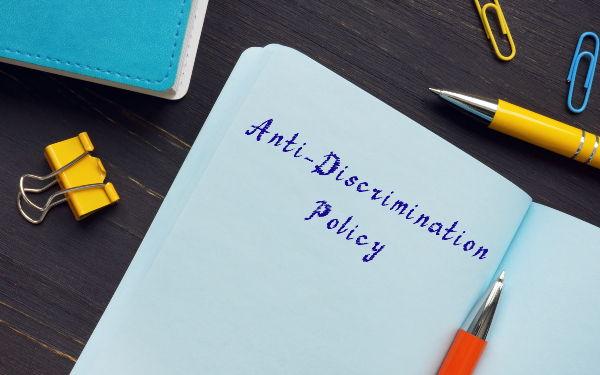
Social work needs to be “pushed further” to embed anti-discriminatory practice within children’s services, say the authors of proposed post-qualifying standards (PQS) for newcomers to the profession.
Members of the expert writing group that drew up the PQS explained why anti-discriminatory practice was the first of the proposed six standards, in a webinar on the Department for Education (DfE) proposals that took place earlier this month.
The DfE set up the group, comprising five social work leaders, an expert by experience, a specialist in curriculum design and a representative from Social Work England, in 2023 to help establish the knowledge and skills required of new council children’s social workers under the then planned early career framework (ECF).
The proposed five-year ECF has been dropped in favour of a two-year social work induction programme, which would replace the existing children’s assessed and supported year in employment (ASYE) for council practitioners. At the end of this, practitioners would be assessed against the new PQS, which would replace existing post-qualifying standards that date largely back to 2015.
New standard on anti-discriminatory practice
While the current standards make no reference to children’s identity or protected characteristics, or to discrimination, the first standard in the proposed new PQS is on anti-discriminatory practice.
Under this, practitioners would be expected to gain insight into children’s and families’ sense of self, applying an “intersectional understanding of identity”, actively reflect on their own identity and prejudices and advocate for social justice and equity across multi-agency partners by promoting anti-racist and anti-discriminatory practices.
“We felt we needed to push the profession further in terms of social workers’ skills in relation to anti-discriminatory practice,” expert writing group member Laura Eden told the webinar.
Eden, director of children’s services at Newham council, added: “If you’re not anti-discriminatory, perhaps you should go home, we felt. That’s why it’s domain one.”
A focus on social work values
The need to take an anti-discriminatory approach is also flagged up in two of the other five standards, on relationships and communication and on reflection and learning.
Another of the group’s members, social care consultant Sharon Davidson, said: “We also spent a lot of time thinking about the values of social workers and what were some of the things that were really important to us and what we know about what is missing and not supported as well as they could be.”
“That then supported why the anti-discriminatory domain was front and centre of the whole standards, but also why it was referenced in the other sections,” she added.
The proposed standards were published for consultation last month, following a Child Safeguarding Practice Review Panel report that found that the race and ethnicity of children were often not recognised, appropriately explored or understood by practitioners, in serious child protection cases.
Case reviews studied by the panel noted that children and families faced barriers to services relating to race, ethnicity or culture, including because of past experiences of racism, language barriers, cultural perceptions that seeking support indicated an inability to cope, and practitioner bias.
‘That’s what social work is’
The six standards are broken down into 26 outcomes statements, setting out what the social worker should be able to do.
Under each outcome sits a list of ‘know’ statements, distilling what the social worker should be able to understand to achieve the outcome, and a set of ‘does’ statements, providing examples of what this might look like in practice.
Writing group member Ellen Marks, director of practice and learning at the charity Pause, highlighted the importance of the ‘does’ statements in this month’s webinar.
“Knowledge is important, but how you are with that frightened person, how you have difficult conversations with people in difficult situations, that’s what social work is,” she said.
Focus on statutory social work to boost retention
Eden said the focus of the standards were on what social workers in local authority children’s services should be able to know and do after two years in practice post-qualification, with a view to boosting retention.
“We know that a lot of social workers in the statutory sector leave the profession or go to do social work elsewhere, and that is really impacting on children’s outcomes,” she said. “So the focus is how we bring people into the profession and how we retain statutory social workers, and that’s why the focus is there.”
She added: “Whether people not in statutory social work can meet these qualifying standards is up for debate.”
The standards are due to be implemented in 2027, alongside the social work induction programme (SWIP), which would involve two years of DfE-funded support for statutory children’s practitioners.
Planned induction programme dependent on government spending review
However, the SWIP, which is being consulted upon alongside the PQS, will only be implemented if the Treasury provides the DfE with sufficient funding in the forthcoming spending review, which will set public expenditure limits from 2026-29.
Employers are currently given £2,000 per ASYE participant in children’s services, a sum that has been in place since the scheme’s inception in 2012.
The DfE’s assistant director, social work workforce, Jim Magee, told the webinar: “We’re looking at what two years [of funding] would look like. It would still be the case of there being a grant from the department.”
He added: “We’ll have to see how the spending review will pan out.”
Practitioners would be assessed by their employers, supported by national guidance and resources, as with the ASYE.
Magee said the assessment would be iterative, not simply at the end of the two years, adding: : “We’d be looking to have a digital system so people can upload things and have them quickly evaluated.”
Celebrate those who’ve inspired you

Photo by Daniel Laflor/peopleimages.com/ AdobeStock
Do you have a colleague, mentor, or social work figure you can’t help but gush about?
Our My Brilliant Colleague series invites you to celebrate anyone within social work who has inspired you – whether current or former colleagues, managers, students, lecturers, mentors or prominent past or present sector figures whom you have admired from afar.
Nominate your colleague or social work inspiration by filling in our nominations form with a few paragraphs (100-250 words) explaining how and why the person has inspired you.
*Please note that, despite the need to provide your name and role, you or the nominee can be anonymous in the published entry*
If you have any questions, email our community journalist, Anastasia Koutsounia, at anastasia.koutsounia@markallengroup.com







 Bournemouth, Christchurch and Poole
Bournemouth, Christchurch and Poole  Hampshire County Council
Hampshire County Council  Oxfordshire County Council
Oxfordshire County Council  South Gloucestershire Council
South Gloucestershire Council  Wokingham Borough Council
Wokingham Borough Council  Webinar: building a practice framework with the influence of practitioner voice
Webinar: building a practice framework with the influence of practitioner voice  ‘They don’t have to retell their story’: building long-lasting relationships with children and young people
‘They don’t have to retell their story’: building long-lasting relationships with children and young people  Podcast: returning to social work after becoming a first-time parent
Podcast: returning to social work after becoming a first-time parent  How managers are inspiring social workers to progress in their careers
How managers are inspiring social workers to progress in their careers  Workforce Insights – showcasing a selection of the sector’s top recruiters
Workforce Insights – showcasing a selection of the sector’s top recruiters  Empowering people with Parkinson’s to lead fulfilling lives
Empowering people with Parkinson’s to lead fulfilling lives 

 Facebook
Facebook X
X LinkedIn
LinkedIn Instagram
Instagram
It’s utterly bizarre that Wayne Reid’s work is not referenced, he’s been a beacon for anti-discriminatory practice for years!
It’s simple – he speaks too much truth to power and they don’t like it.
“If you are not anti-discriminatory perhaps you should go home we felt”. That’ll do it, that’ll embed anti-discriminstory practice into social work practice. Nothing says evidence based proposal than “we’ve already made up our minds what’s best for you and now we’ll tell you to how to do it on ou terms”. Or to put it in another way, “Our way or bus home for you bigot”. The same people making the familiar arguments smug in their certainty that their naratives aren’t going to be challenged, that there’ll be the usual guilt ridden supposed anti-racists, the preening performative anti-discrimination warriors pushing each other out of the way to be top trumps in the front of the affirmation queue. Meanwhile those who need to complete their PQS will note the buzz words, note the tone required and rote write the expected to fo what they are bidden. A bit like the rigorous evidence bases most of us “demonstrate” to our response to the “standards” SWE deluded itself it has embedded to improve social work practice. Another day just like any other day filled with chatter amongst self affirming ‘experts’convinced they are being daring and “pushing further”. Meanwhile nothing changes.
I couldn’t agree more with this.
Is “you should go home” a relative of “go back to where you’ve come from”? I say when you expect others to reflect on their personal prejudices you should start with acknowledging your own. You might find that the people you think you are speaking about and on behalf of don’t actually accept you as their champion. I as a black female nearly qualified social worker I certainly don’t. What’s more I find the tone of what I’ve read abhorrent. Anti-Discrimination battles aren’t won in the echo chambers of leaders either. Earn respect before castigating others. I’m really really annoyed by what I’ve read here.
The same arguments for supposed social worker inadequacies and the same lame reliance on bureaucracy, “uploading” is such an inspirational innovation isn’t it, and the self interest of local authorities clawing for funding and private ‘consultancies’ angling for training commisions. Didn’t see that coming did we collagues? We’ll all go through the head nodding motions and there will still be vacancies, poor supervision, authoritarian micro management, the whole SWE nonsense and the rest. You want to improve social work and the experience of those in contact with it? Start by getting rid of the clichés.
It really seems to be a dystopian kick in the backside in these times. Social Work has been neglected as have all services that support our children and youth. Our education for children with additional needs is mainly outsourced to organisations less effective and with less scrutiny than when I started in Social Work 25 years ago.
Our systems are designed to contain. Not to facilitate development and growth. This is a political decision and choice. Until we invest in our children and the future growth of this Country it will continue to decline.
Before planting a crop you fertilize the soil to ensure strong growth. Where is the fertilizer/investment in our Society and infrastructure. It is minimal in comparison to the amount be extracted.
In my 25 years of direct Social Work I have never experienced such a defeated and despondent youth.
And our youth are our wealth so we are all going to be very poor 😞😞😞
There is something so quintessentially social work about fawning validation of the claimes of self defined experts castigating diligent practitioners for needing a push to be less bigoted and to go home if they can’t do as they are told and celebrate that as being anti-discriminatory. Other collagues have said it better but if I can add I’d like to say it’s the kind of lack of self awareness and lack of introspection which makes most of what is so earnestly claimed on behalf of social work such a laughing stock for the general public. We deserve better than this as social workers and we deserve a more serious approach to anti-discriminatory activism than regurgitated sound bites.
We are all racist incompetents apparently and 6 “Standards” are going to make us virtuous anti-discriminatory paragons. Those not goung home in shame that is. I don’t feel like being polite so my reading is that all this is the usual repeat and rinse of the over indulged usual suspects spouting the same USA infused CRT clichés. There are racists and there are, mainly, religion inspired, judgemental discriminators in social work, including as supervisors and managers, but they are not us and most of us are not them so none of this smugness will touch them at all. We revere religious dogma as culture in social work of course. If I was working in Newham I’d look for another job. The unthinking double binders will of course pat themselves on the back by the wallow that “well a racist would say this wouldn’t they”. And that is the vacuity in which we are working.
The critical responses of this vacuous, virtue signalling nonsense of a new set of ‘standards’ gives me hope for the profession.
There are more of us critical of careers being built and commissions being earned on the back of denigrating social workers than some of our betters realise.